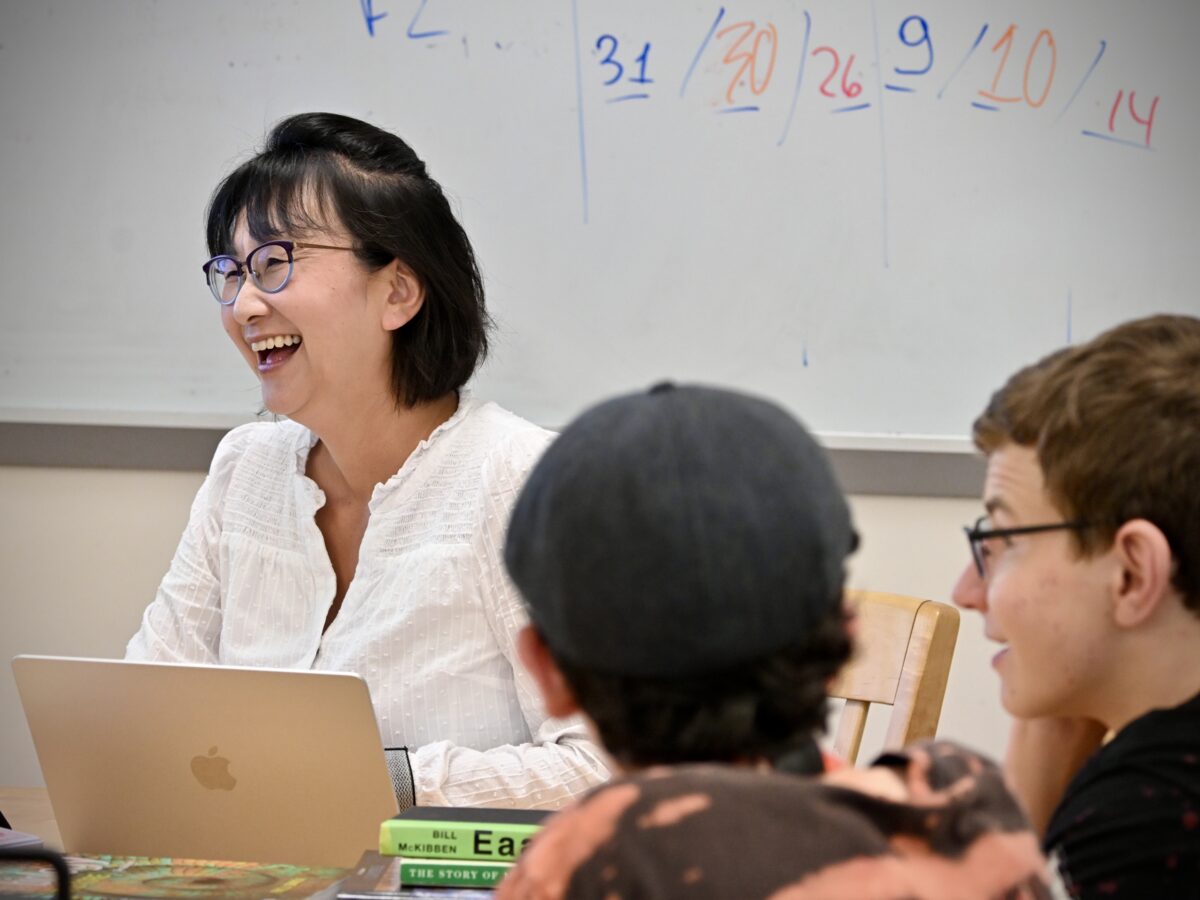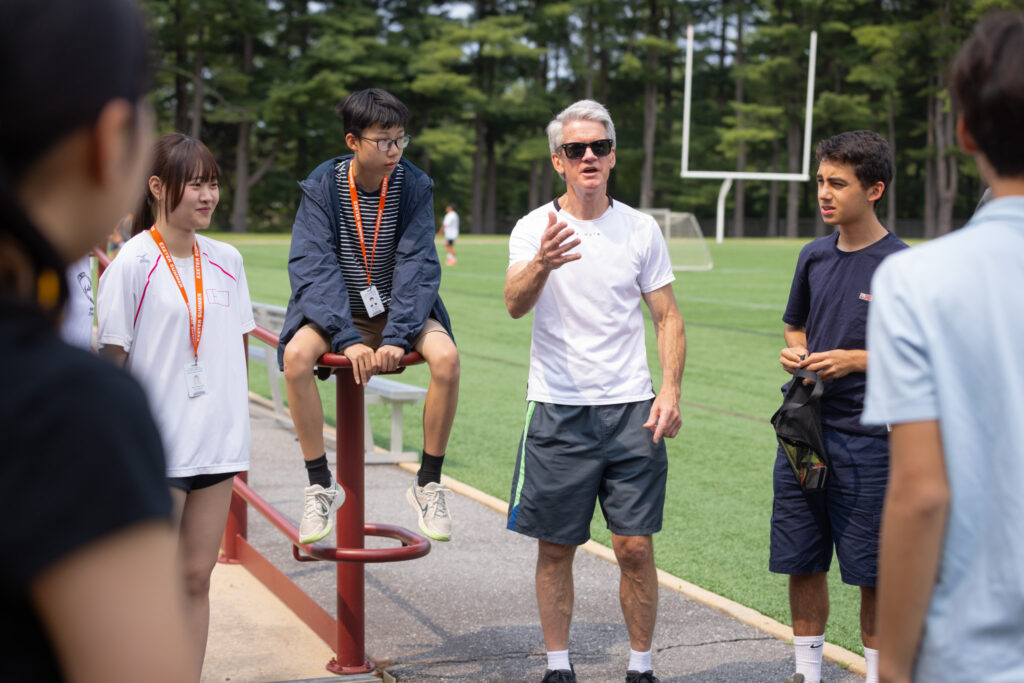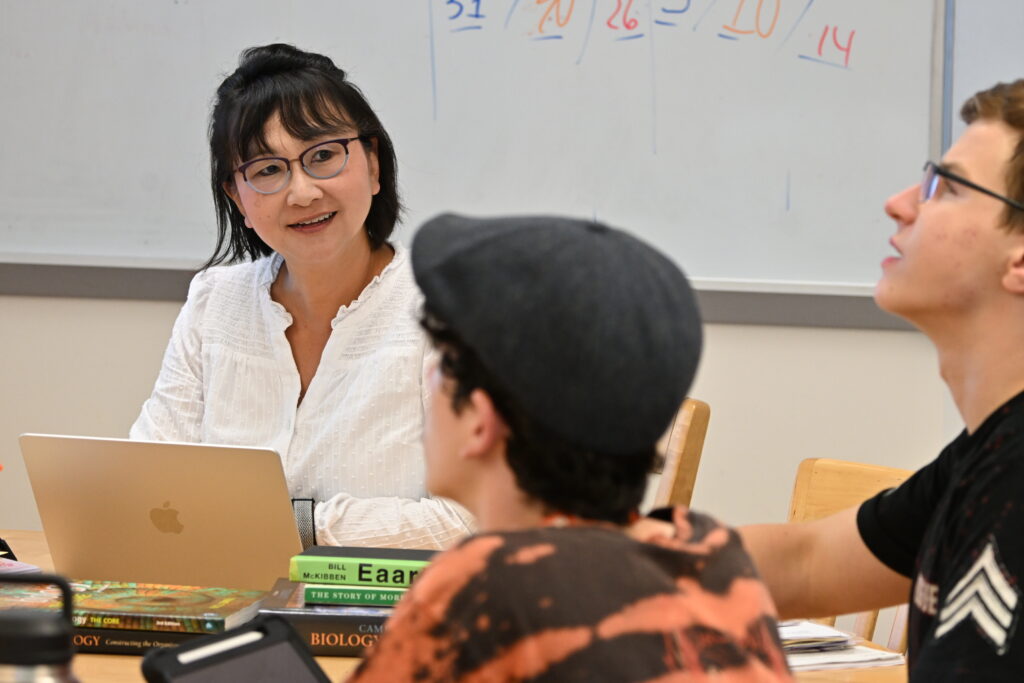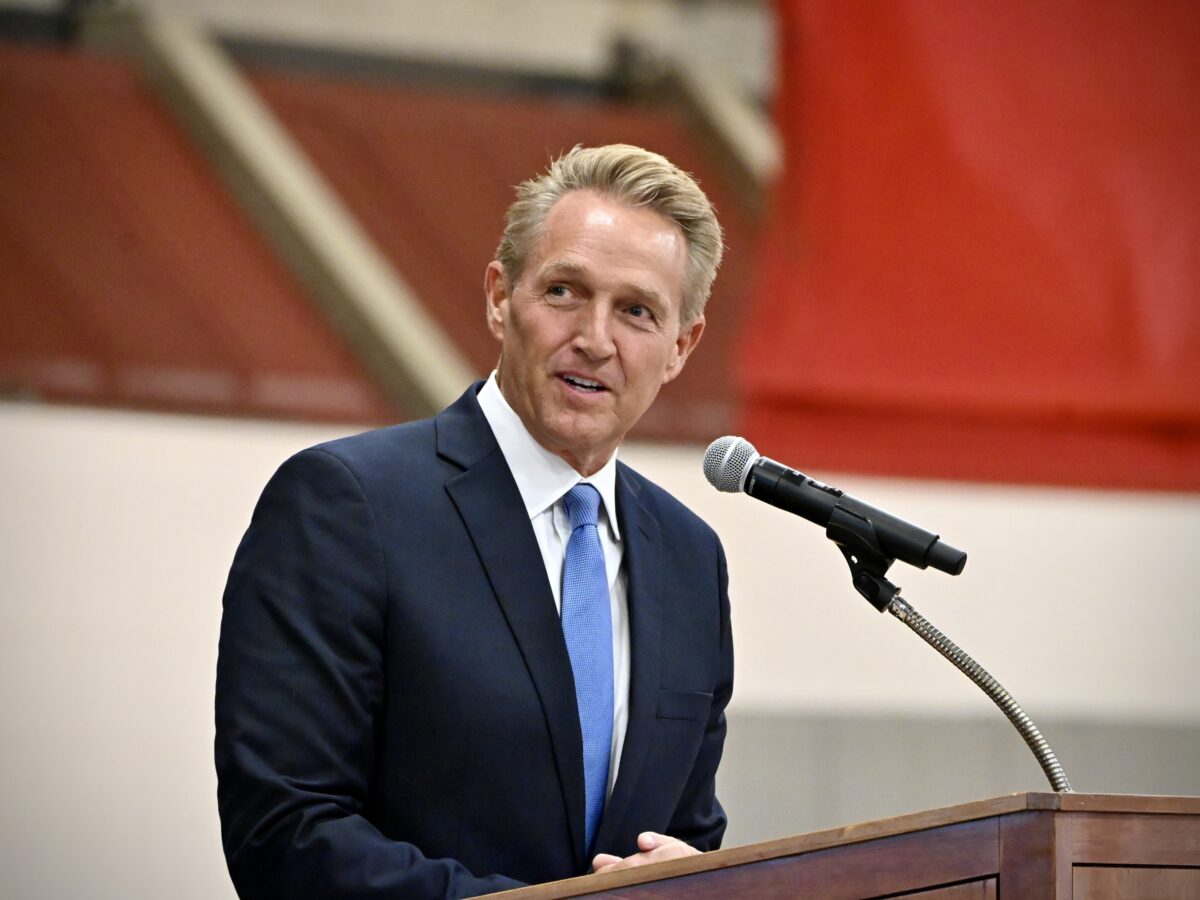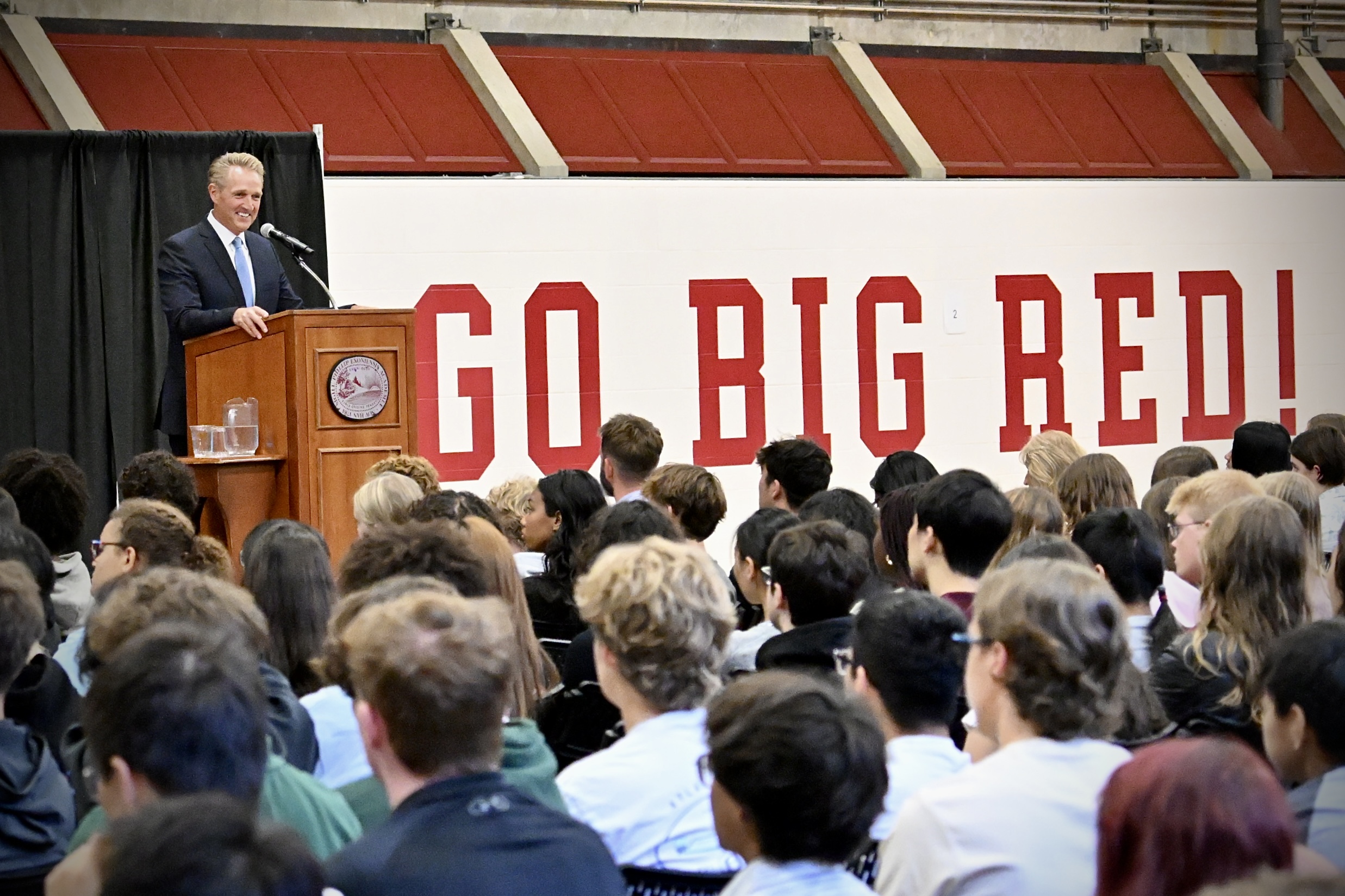Preserved in stone,
Preserved in stone,
reimagined in spirit
A yearlong renovation transforms a 113-year-old campus building into a home for ancient texts and modern gatherings.
The Davis building, nestled between the contemporary Class of 1945 Library and the Colonial-style Nathaniel Gilman House, is a campus landmark. This Neoclassical structure, with its symmetrical red brick and granite façade and grand central entrance topped by tall multi-pane windows and ionic columns, bridges the past and future of education and community at Exeter.
It was completed in 1912 and served as the Academy’s library, then became a bustling student center and administrative hub in the 1970s. Beginning this fall, the newly named Davis Hall is now home to the Classical Languages Department, the Latin Study and a community gathering space.
Following a thoughtful yearlong renovation led by the Boston architecture firm designLAB, Davis again hums with activity — and a new purpose. Instructors are settling into sunny new classrooms on the first floor. The original grand marble staircase, slightly worn by the footsteps of generations of Exonians, leads up to bright, freshly painted and restored reading rooms. Standing on the second floor, gazing up at the ornate plaster ceilings or out the windows toward the front lawn, one can sense that Davis’ latest renewal is another exciting opportunity.
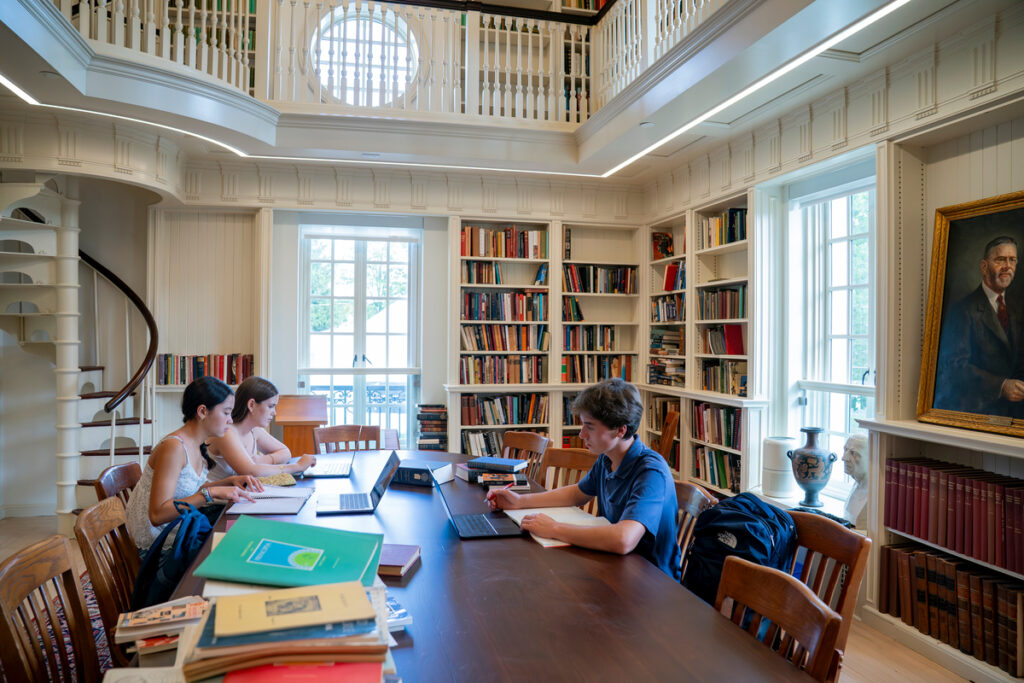
The renovated and renamed Mary Amen Study holds the Classical Languages Department’s collection of Latin and Greek texts.

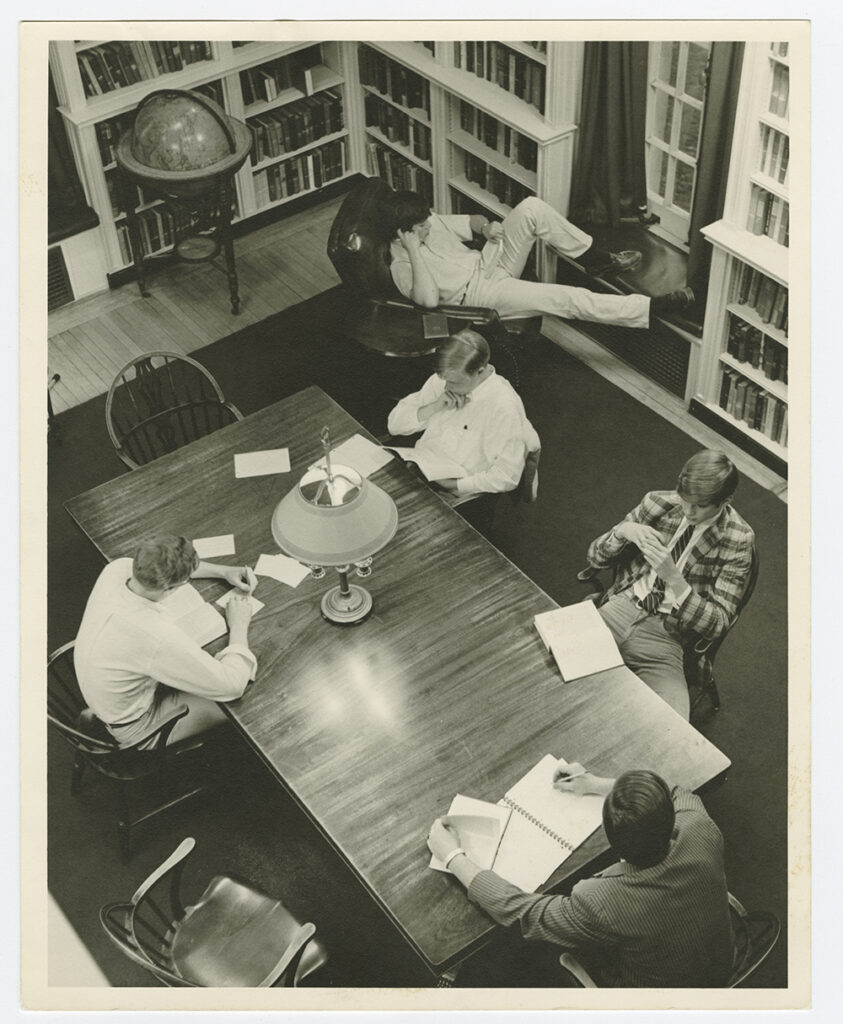
Davis Hall has always been a wonderful place for students to study and relax.
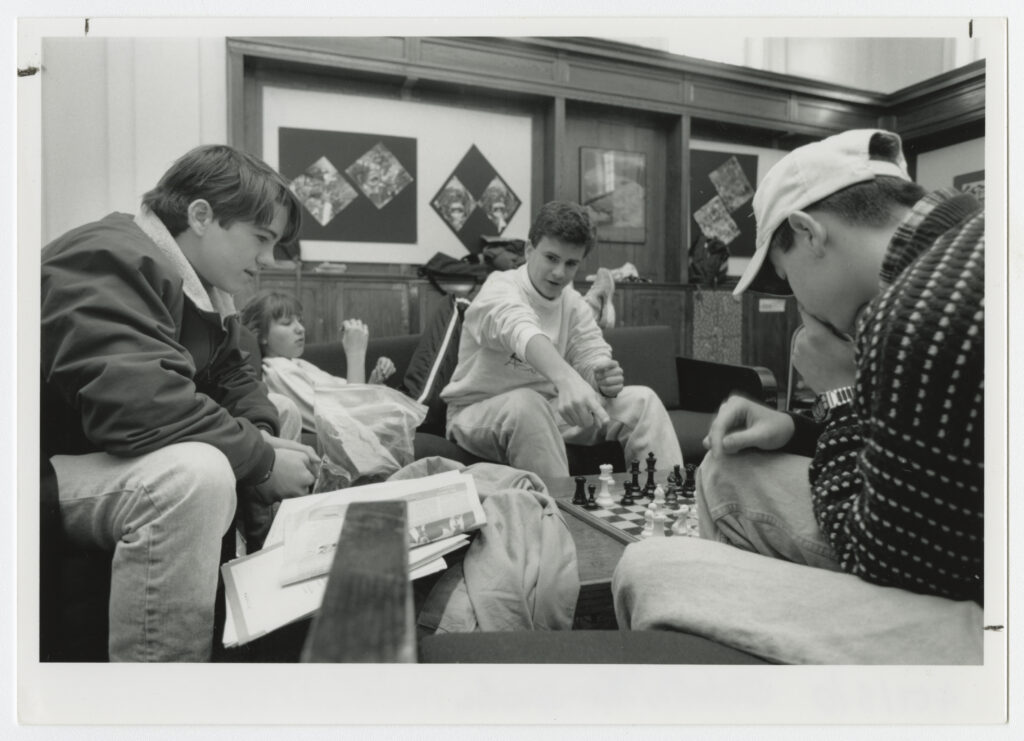
The Davis Student Center days were filled with student activities.
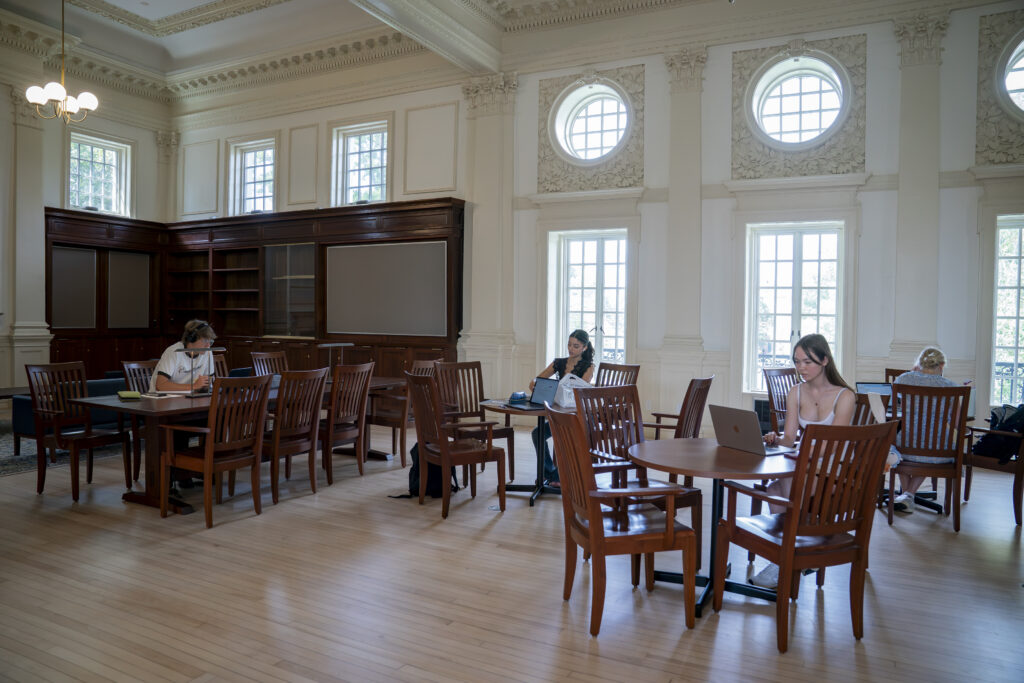
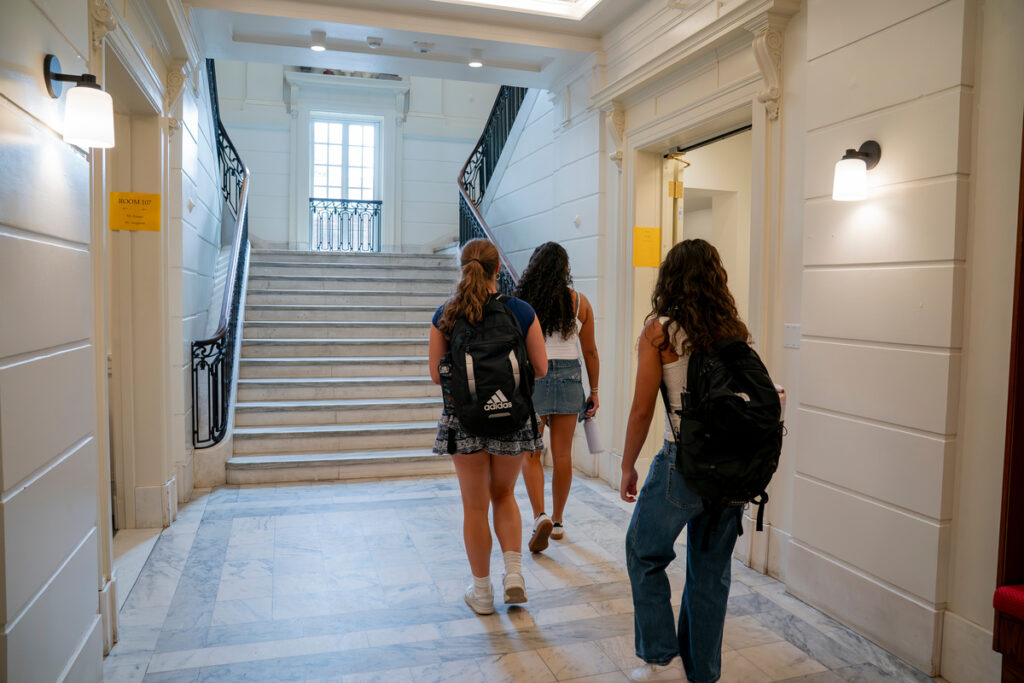
The Mary Rawson Reading Room (left) will serve as a quiet place for study and repose. The grand marble staircase to the century-old build (above) was preserved.
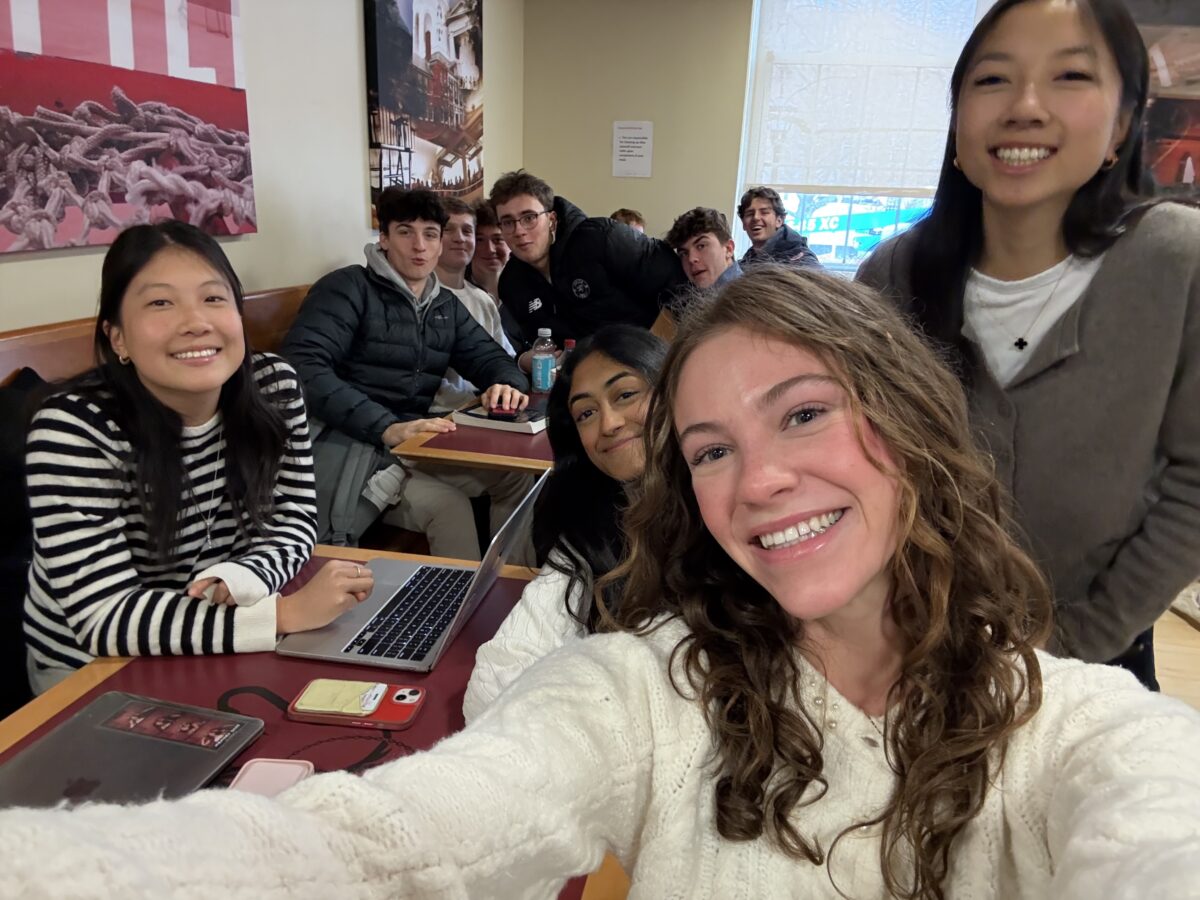
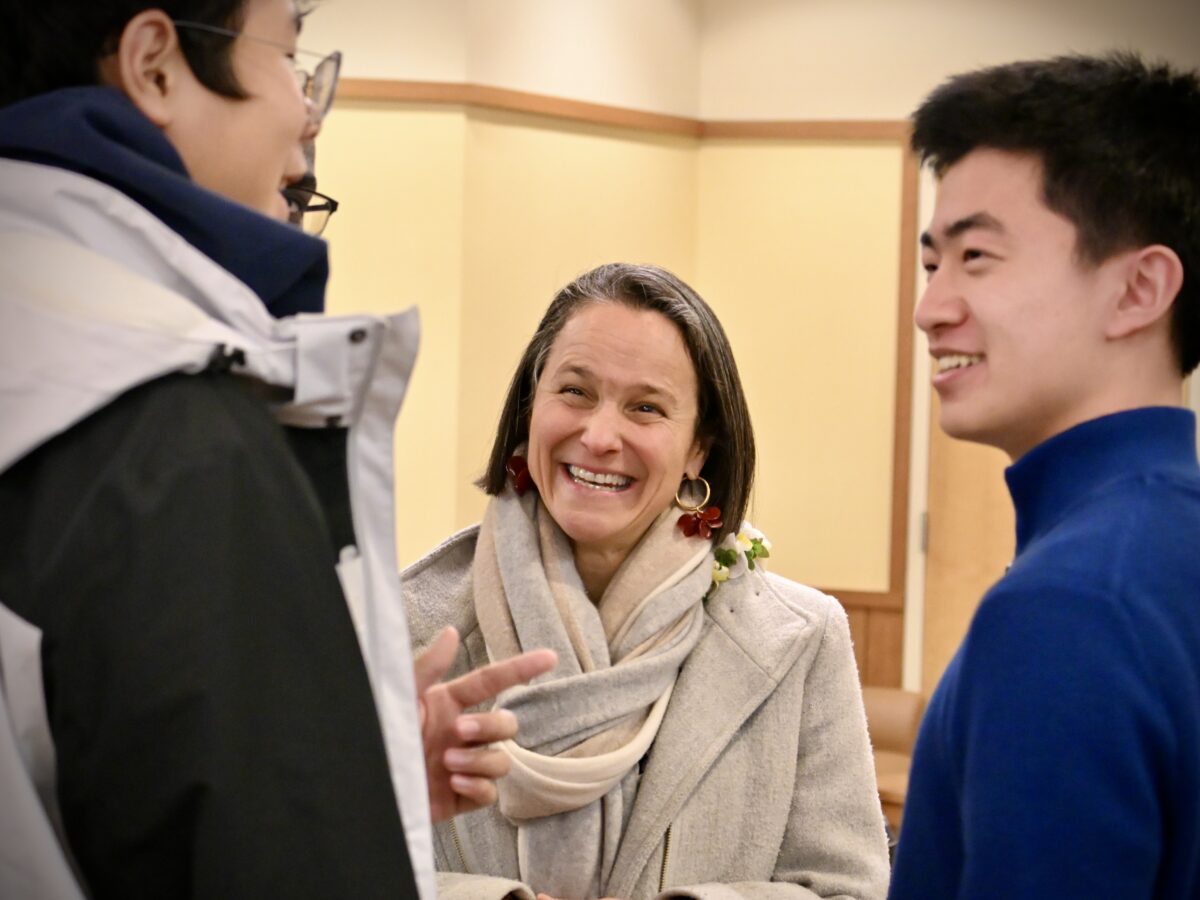
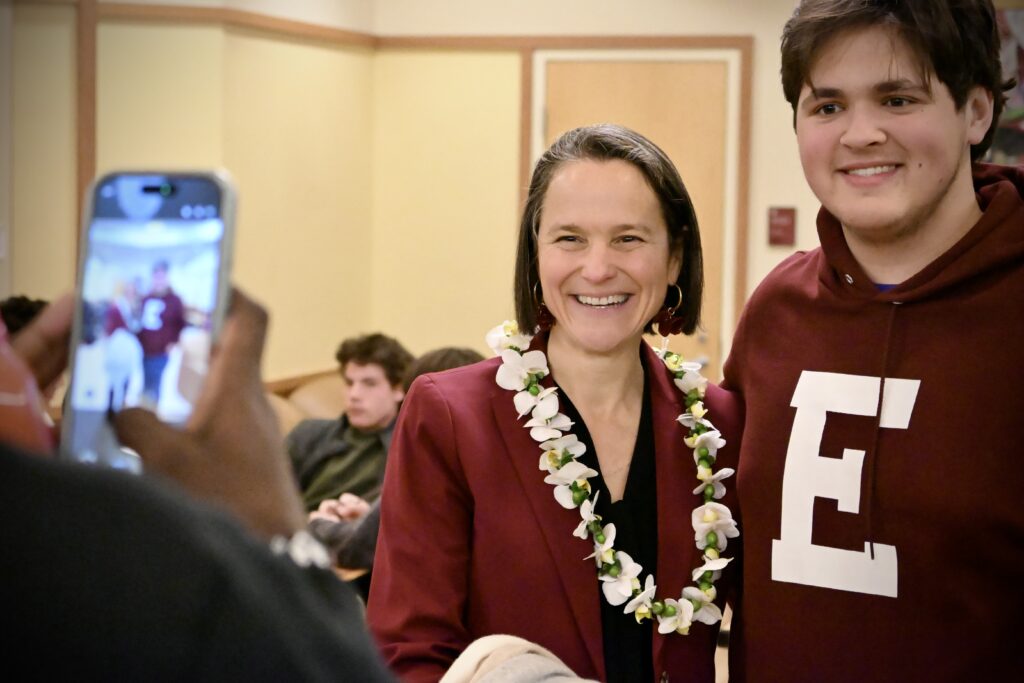
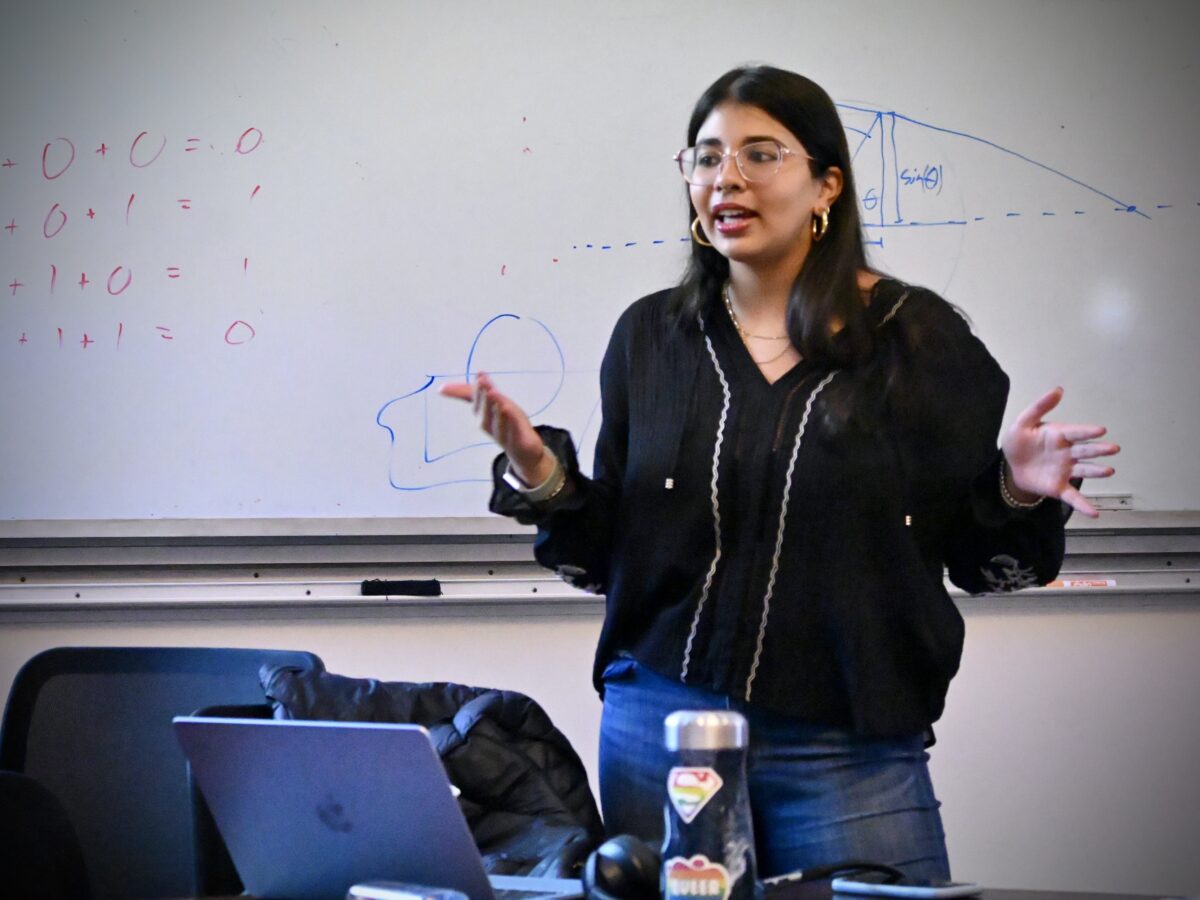
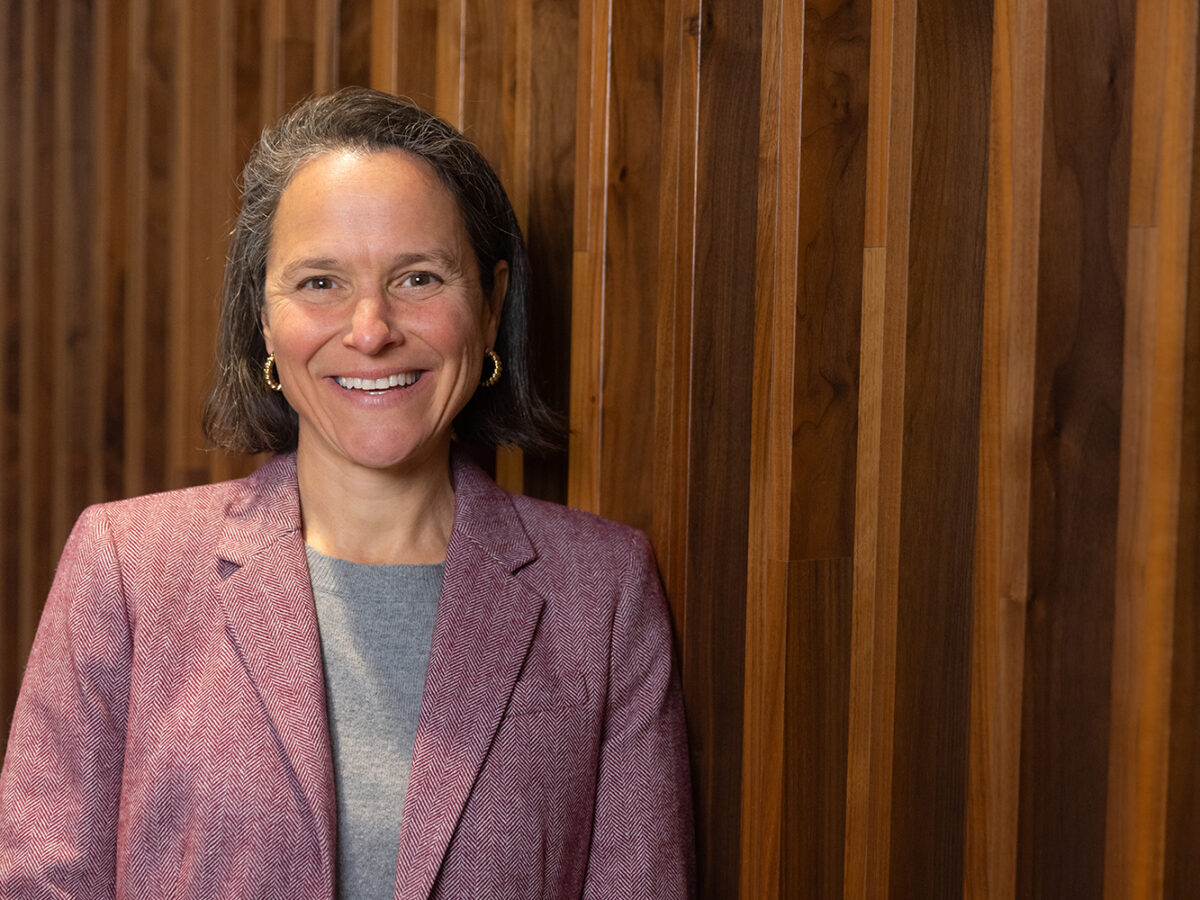


 Davis Library was a popular student retreat. Fred Roe ’39 remembered it as the place where he could indulge in his lifelong fascination with cars — a highlight of his years at Exeter. “Miss Vroom, the librarian, ordered at least two foreign books on automotive history for me,” he wrote in a letter published in the spring 2008 Bulletin. “I tried to spend time at Davis every day.”
Davis Library was a popular student retreat. Fred Roe ’39 remembered it as the place where he could indulge in his lifelong fascination with cars — a highlight of his years at Exeter. “Miss Vroom, the librarian, ordered at least two foreign books on automotive history for me,” he wrote in a letter published in the spring 2008 Bulletin. “I tried to spend time at Davis every day.”

